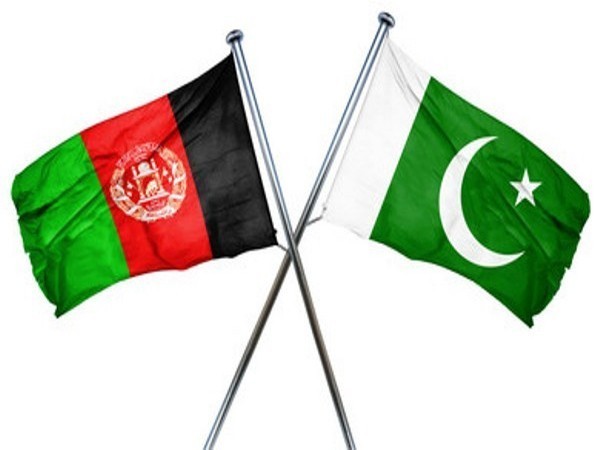PAKISTAN’S TALIBAN-TRIGGERED TOLL 48, AND COUNTING

Seven Pakistani soldiers were killed this week in terror attacks in Balochistan province
in continuing counter-terror operations that pointed to the rising tide of violence by
Tehreek-e-Taliban Pakistan (TTP), forcing Prime Minister Imran Khan’s government
to suspend its ‘peace’ dialogue with the Sunni extremist group.
The toll could cross 50 and more. Forty-one soldiers and civilians died in January,
signaling a bad start of 2022 for the government. The number of terror attacks is smaller
so far, but casualties are higher, indicating growing profile of the group that the
government has banned, while still negotiating with it.
Islamabad-based think tank Pakistan Institute for Conflict and Security Studies
(PICSS) has said that the number of violent attacks in January 2022 decreased to 24
from 28 in the previous month, but the rate of deaths and injuries increased by 15
percent and 37 percent respectively, compared to December 2021.
The military-backed government has encouraged use of the word ‘shaheed’ (martyrs)
for the soldiers, alleging that violence is orchestrated from ‘outside’. This has helped
it to drive a nationalist narrative for the government that seeks to deflect criticism of
its handling of both, the violence and the ‘peace’ dialogue.
With the rising terror violence, Interior Minister Sheikh Rasheed Ahmed concede on
February 3 that there was “no doubt” about TTP’s role and that there would be “no
talks.” The latter, analysts note, comes each time number of terror attacks rise, while
behind-the-scene talks continue through mediation by tribal chiefs. This has been a
continuing phenomenon, despite failures, for over 15 years, stretching into the
Musharraf era, when the TTP was formed.
While minister Rasheed admitted to the TTP attacks across the country, the focus
remains on Balochistan, the crucial end-point of the China-Pakistan Economic
Corridor (CPEC). Islamabad needs to respond to China’s serious concerns for the
security of its personnel and its billions-worth of investment in joint projects.
While terror attacks show TTP’s footprint in populous Punjab and volatile Khyber
Pakhtunkhwa, including the tribal FATA region, the PICSS notes that in Balochistan,
militants carried out six attacks in which 17 people were killed, most of whom were
security forces (14 security forces; 3 civilians), and 32 people were injured, most of
whom were civilians (26 civilians; 6 security forces).
Terror attacks have risen since the TTP ended a month long cease-fire (November 10-
December 10, 2021) brokered by the Taliban, now back in power in neighboring
Afghanistan.
Islamabad has failed to get the new Kabul rulers to force evacuation of the TTP cadres
from its soil, as a ‘price’ for having facilitated their return to power. However,
ideologically close to TTP, the Afghans cannot ignore the fact that some 6,000 TTP
cadres had fought alongside them through 2020-21, till they took power last August.
None of these issues could be resolved during the recent talks Pakistan’s National
Security Advisor, Dr Moeed Yusuf, had with the Kabul rulers. Analysts note that the
two sides did not even take up another thorny issue, of clashes on the border, called the
Durand Line, drawn during the colonial era that all regimes, including the Taliban, have
violently disputed.
While political opposition’s voice is muted on violence triggered by the TTP and other
militant groups, Pakistani analysts have red-flagged the government’s handling and its
basic approach and philosophy.
Writing in Friday Times (February 3, 2022), Umer Farooq says the Pakistani
establishment ‘naively’ believes that it facilitated the Afghan Taliban. “Americans left
an open field for Taliban in Afghanistan as their confidence and trust in Afghan security
forces fell like a house of cards. Taliban were presented to the Pakistani security
apparatus as fait accompli.
“The fact that Pakistani security apparatus was euphoric about Taliban victory is the
height of naivety…. The Taliban movement, which only five months ago was the
epicenter of Sunni militancy in the region has now become one of the most unstable
and unreliable states of the region.”
Umer Farooq draws attention towards the Afghan Taliban’s “linkages with Al-Qaida,
on the one hand and Pakistani Taliban on the other” and their ‘rivalry’ with the local
chapter of the Islamic State (IS) that is called ISIS (Khorasan).
Stressing on the larger spread of terrorism that should concern the international
community, and Pakistan’s role in it, Farooq says: “Lesser known is the fact that
Afghan Taliban have been trying to wean the Pakistani Taliban away from the
dependence on ISIS—which has increasingly been in the process of establishing its
footsteps in the region.”
On TTP, he notes: “The Pakistani Taliban have re-grouped and revived their strength
in the Pak-Afghan border areas and their leadership is based in Afghan cities and towns
close to the border.”
Terror camps, according to Pakistani media reports, have now been shifted to the
Iranian territory and Baloch rebels are now operating from Pak-Iran border areas. The
result is an increasing rate of attacks in Balochistan.
“There are signs that Pakistan is back to the situation where it has to face two
insurgencies: one in the North West led by the Pakistani Taliban and the other in South
led by Baloch rebels. Afghan Taliban figures in both the cases of insurgency and waves
of terror attacks are in the north as well as in the south.”
Farooq observes: “The fact that Taliban have now become a state doesn’t necessarily
mean that they have completely transitioned out of their former status as a terror and
militant organisation.”
Overall, this indicates Pakistan’s growing frustration with the Afghan Taliban for
whom they are having to aggressively plead for support from the world community –
all in the name of humanitarian aid. (Ends)






